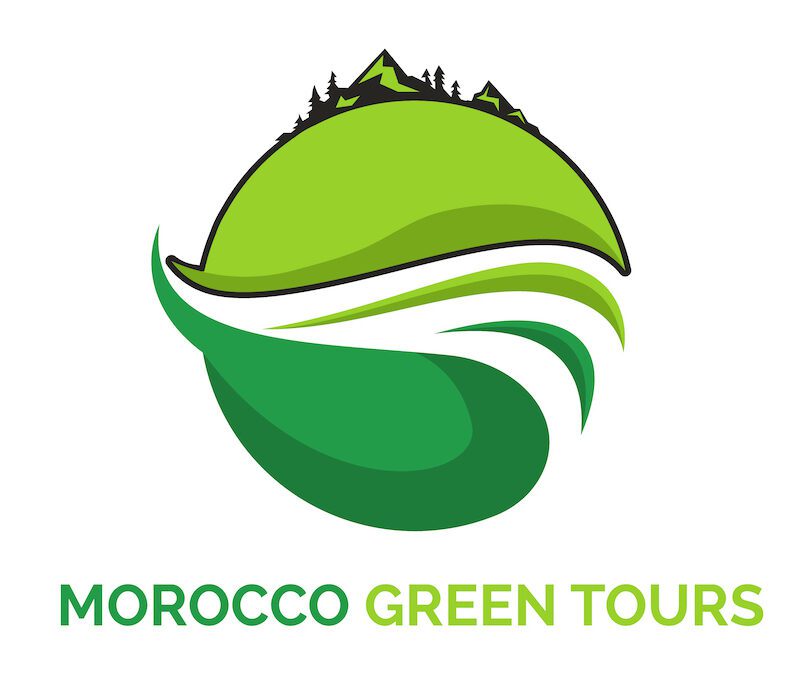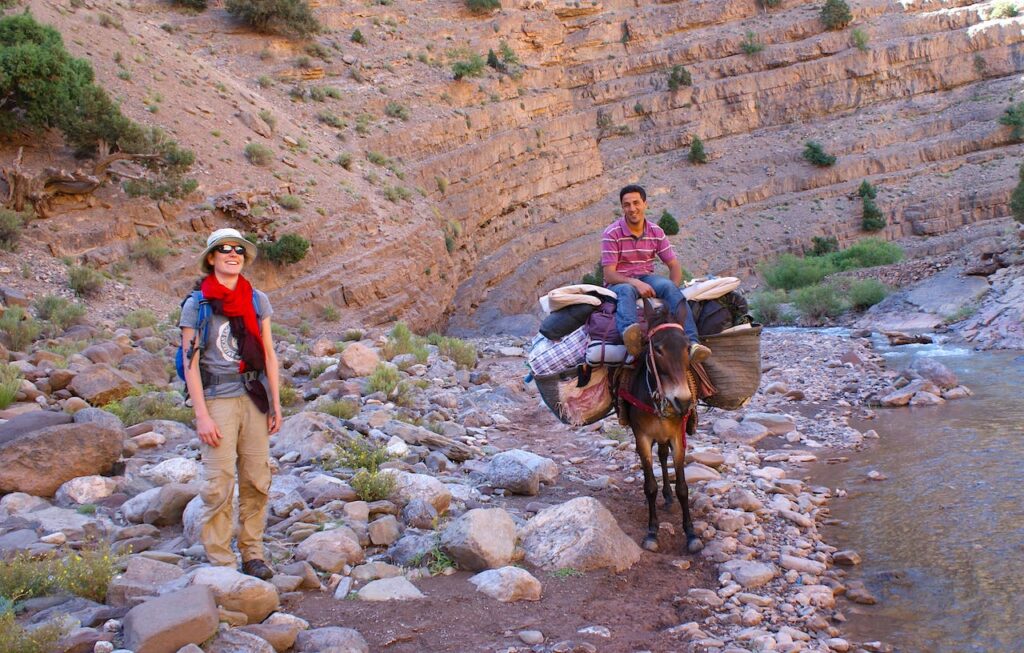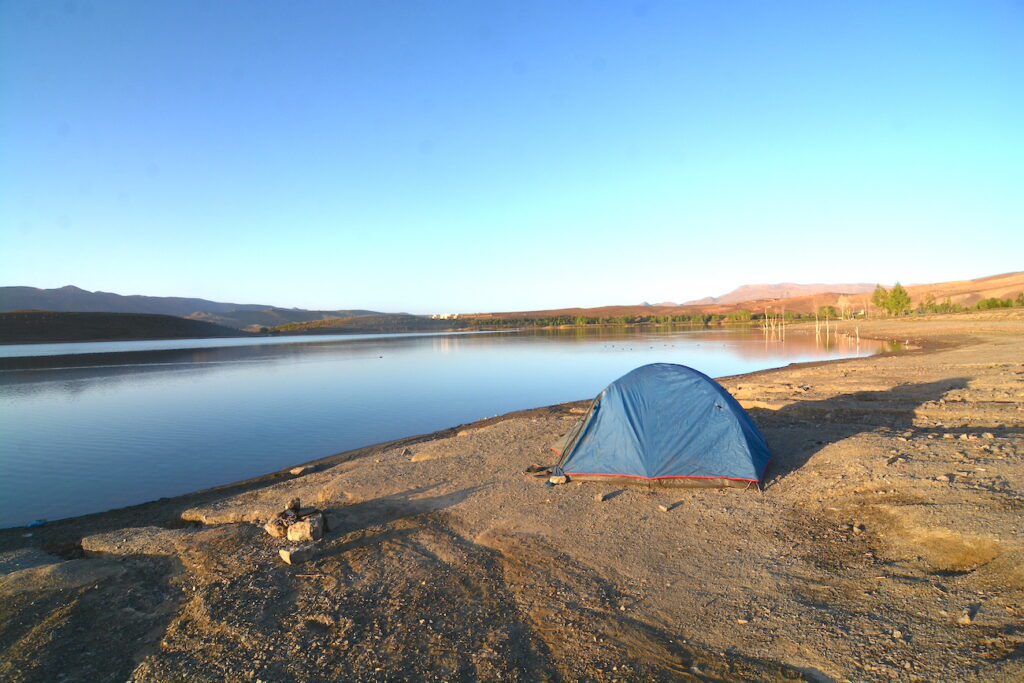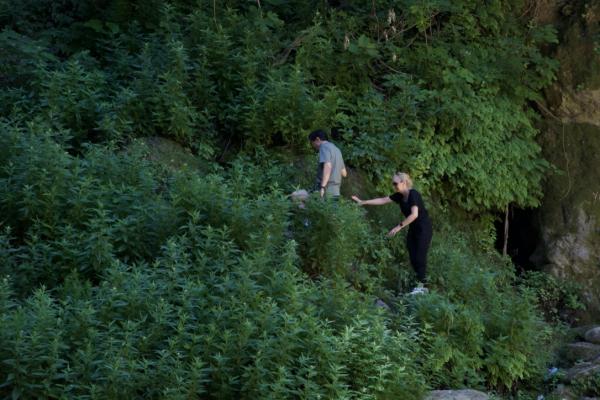Sustainable Trekking and Hiking Routes in Morocco
Trekking and hiking opportunities abound for adventure seekers in Morocco, a country with a diverse landscape that spans from rugged mountains to vast deserts. But as the appeal of seeing these natural treasures increases, so does the need to make sure that these adventures are environmentally friendly and sustainable. We’ll explore some sustainable trekking and hiking routes in Morocco in this extensive guide, with a focus on implementing Leave No Trace guidelines and practicing responsible outdoor recreation.
Additionally, Morocco’s hiking and trekking trails hold additional significance due to its centuries-old traditions and rich cultural tapestry. In addition to taking in the breath-inspiring natural scenery, travelers may interact with the local people and discover more about their way of life. Whether hiking through mountain trails that are lined with historic Berber communities or camping in the Sahara Desert under the stars, these routes provide a deep connection to the region and its people. Adventurers can set out on excursions that positively affect the environment and the communities that call Morocco home by adopting sustainable methods and showing respect for the local way of life and environment.


The Majesty of the Atlas Mountains
The Atlas Mountains, which cross Morocco, Algeria, and Tunisia, provide a breathtaking setting for trekking expeditions. Trekkers particularly love Morocco’s Anti-Atlas and High Atlas mountain ranges. The Toubkal trekking trip, which leads to the summit of Jebel Toubkal, the highest peak in North Africa, is one of the most well-known routes. However, ethical trekking methods are crucial to the route’s sustainability.
Leave No Trace Principles in the Atlas Mountains
Plan Ahead and Get Ready: Make sure you have enough food, water, and hiking equipment before starting a trek. Examine the route, the climate, and any cultural issues.
Travel and Camp on Sturdy Surfaces: To reduce erosion and prevent harming delicate vegetation, stay on designated trails. To lessen your environmental effects, pick approved campsites and make use of the fire rings that are already there.
Dispose of waste properly: The right way to dispose of waste is to pack out all of it, including biodegradable items like toilet paper and food scraps. Use appropriate trash disposal techniques and bring a waste bag to gather litter from the trail.
Don’t Take What You Find: Avoid the urge to bring back mementos from the natural world. To protect the area’s natural and cultural heritage, leave rocks, vegetation, and cultural artifacts alone.
Respect wildlife: by keeping a safe distance from it and refraining from feeding or petting it. Keep pets under control and make sure they don’t annoy local wildlife.
Be Mindful of Other Visitors: Be mindful of other hikers and keep the atmosphere calm. Make as little noise as possible and show consideration for other hikers’ privacy.
Jebel Saghro: Exploring the Anti-Atlas Range
The Anti-Atlas Range presents an intriguing alternative for those looking for a less crowded and quieter trekking experience. Exploration finds a captivating backdrop in Jebel Saghro, with its rugged terrain and Berber villages strewn throughout the valleys.
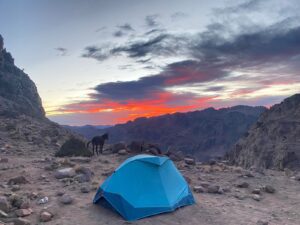
Responsible Outdoor Recreation Practices in Jebel Sarho
Support Local Communities: Learn about the customs and culture of your community by politely interacting with them. To boost the local economy, think about using guides who are familiar with the area and encouraging small companies.
Preserve Water: In arid areas such as the Anti-Atlas, water supplies may be limited. By carrying a reusable water bottle and filling it up at specified locations, you can practice water conservation. Use as little water as possible when cooking and camping.
Reduce Fire Risk: To avoid wildfires, exercise caution around fire in dry areas. When cooking, use portable stoves rather than open flames, and always abide by local laws governing campfires.
Keep Up With Wildlife: Learn about the species that calls the area home and take safety measures to prevent encounters with animals that could pose a threat, like scorpions or snakes. Honor the habitats of threatened and endangered animals.
Make a Positive Impact: Take into account volunteering for neighborhood conservation groups or taking part in neighborhood projects that support sustainable tourism and the preservation of the environment.
Exercise Cultural Sensitivity: When engaging with Berber village inhabitants, observe their traditions, clothing, and manners. Before taking pictures of people or their belongings, get their permission. Also, stay out of private areas.
Sustainable Trekking in the Rif Mountains
Trekkers looking for a different landscape can find a lush and green haven in the northern Moroccan Rif Mountains. Trails meander through charming villages, cedar forests, and terraced hillsides, offering chances to engage in close-up cultural experiences and wildlife observation.
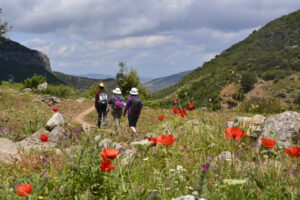
Key Principles for Sustainable Trekking in the Rif Mountains
Essential Guidelines for Eco-Friendly Hiking in the Rif Mountains
Honor native plants and animals: Numerous plant and animal species, some of which are endemic to the area, can be found in the Rif Mountains. Take care not to disturb the habitats of wildlife by trampling on plants.
Encourage Local Conservation Initiatives: Due to the Rif Mountains’ ecological significance, many of its areas are protected. Think about making a donation or offering your assistance to groups that work to protect these natural wonders.
Practice Responsible Waste Management: Use reusable trash bags and pack out all waste, including biodegradable items, to practice responsible waste management. Trash should be disposed of in designated bins or brought with you until it can be disposed of properly.
Camp Wisely: When you go camping in the Rif Mountains, try to stay away from undeveloped areas and try to leave as little of an environmental impact as possible. Don’t create new trails or disturb sensitive areas; instead, abide by the Leave No Trace philosophy.
Interact with Local Communities: Invest some time in learning about the customs and culture of the Rif Mountain communities. Encourage local companies and craftspeople, and look for chances to participate in cross-cultural interactions.
Educate Yourself and Others: Talk to other hikers and tourists about the value of sustainable tourism practices. While appreciating the splendor of the Rif Mountains, set an example for others to follow and urge them to reduce their environmental impact.
Trekking in the Sahara: Exploring Morocco’s Desert Wilderness

The vast and breathtaking Sahara Desert of Morocco attracts travelers with its sweeping dunes, striking rock formations, and seemingly endless horizons. Trekking in the Sahara offers an unmatched chance to fully immerse oneself in the solitude and grandeur of one of the most famous deserts in the world, even though it poses different challenges than trekking in mountainous areas.
Careful water management, navigational skills, sun protection, Leave No Trace principles, safety precautions, and choosing suggested routes such as Erg Chebbi Dunes, Tassili n’Ajjer Plateau, Djebel Saghro Massif, or M’hamid El Ghizlane to Erg Chigaga are all necessary in the Sahara Desert. Taking these factors into account guarantees safe and sustainable Sahara trekking experiences, enabling travelers to experience the timeless beauty and untamed wilderness of one of the most famous deserts in the world with the least amount of impact on the delicate desert environment. Trekking in Chegaga Dunes in particular gives breathtaking views of the vast desert and enormous sand dunes, making it an unforgettable experience to travel through the heart of the Sahara.
Nurturing Nature, Savoring Serenity
It is our duty as adventurers to make sure that the environment is not harmed in the process of pursuing outdoor experiences. We can reduce our impact on delicate ecosystems and protect Morocco’s mountains and wilderness areas for future generations to enjoy by adopting sustainable trekking and hiking practices. Let’s travel lightly, leaving only our footprints behind, and bring back memories of the amazing scenery and enlightening interactions with the local people that make each trip genuinely unique.
In conclusion, Sustainable Trekking and Hiking Routes in Morocco provide access to unspoiled landscapes and rich cultural experiences. We can go on adventures that not only feed our souls but also support local communities and environmental preservation by following Leave No Trace guidelines and engaging in responsible outdoor recreation.
